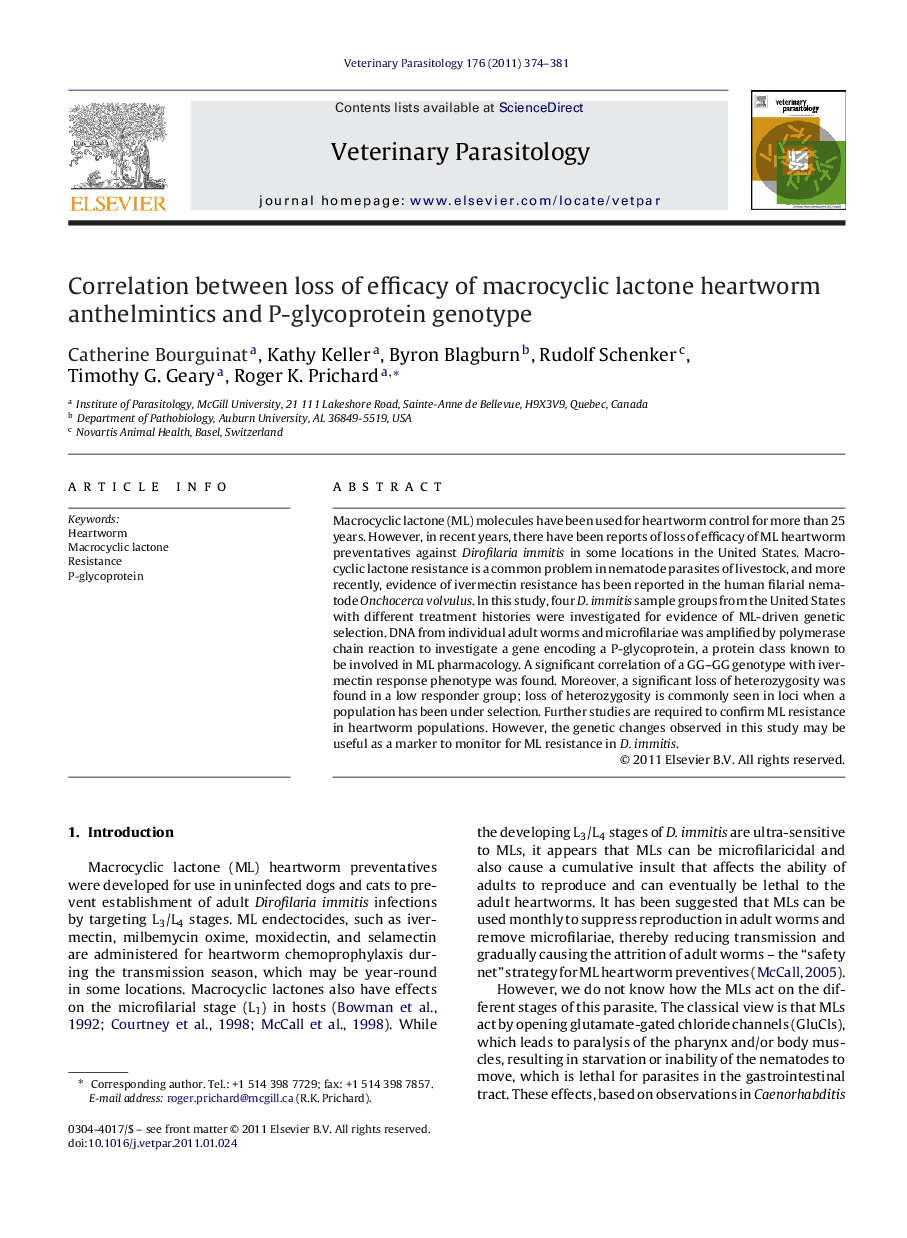| Article ID | Journal | Published Year | Pages | File Type |
|---|---|---|---|---|
| 2470381 | Veterinary Parasitology | 2011 | 8 Pages |
Macrocyclic lactone (ML) molecules have been used for heartworm control for more than 25 years. However, in recent years, there have been reports of loss of efficacy of ML heartworm preventatives against Dirofilaria immitis in some locations in the United States. Macrocyclic lactone resistance is a common problem in nematode parasites of livestock, and more recently, evidence of ivermectin resistance has been reported in the human filarial nematode Onchocerca volvulus. In this study, four D. immitis sample groups from the United States with different treatment histories were investigated for evidence of ML-driven genetic selection. DNA from individual adult worms and microfilariae was amplified by polymerase chain reaction to investigate a gene encoding a P-glycoprotein, a protein class known to be involved in ML pharmacology. A significant correlation of a GG–GG genotype with ivermectin response phenotype was found. Moreover, a significant loss of heterozygosity was found in a low responder group; loss of heterozygosity is commonly seen in loci when a population has been under selection. Further studies are required to confirm ML resistance in heartworm populations. However, the genetic changes observed in this study may be useful as a marker to monitor for ML resistance in D. immitis.
